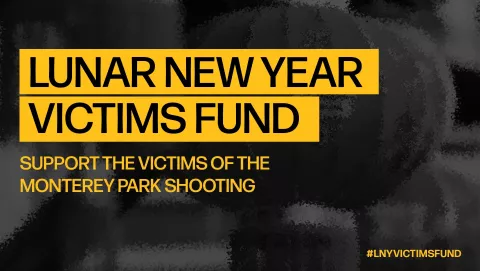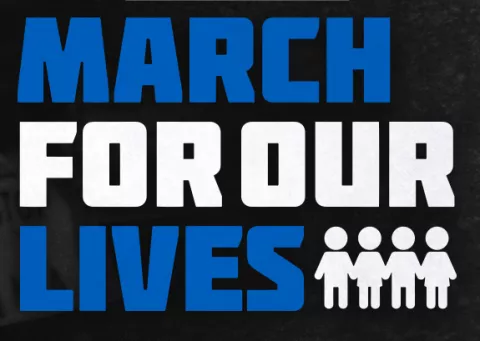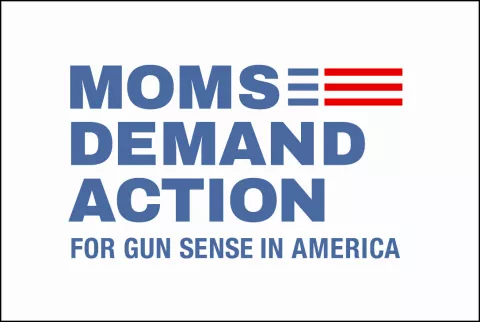A message from Chancellor Sam Hawgood
Dear UCSF Community,
On Saturday evening, at least 11 people were killed and nine more were wounded in a mass shooting at a dance ballroom in Monterey Park, a Southern California community with a sizeable Asian American population. Our hearts go out to the families and friends of those who were killed or injured in yet another act of gun violence.
While much is not yet known, it appears that many of the victims were of Asian heritage in their 50s, 60s, and 70s, including the deceased gunman. This tragedy is compounded by the fact that it took place on the eve of Lunar New Year, which many in the Asian American Pacific Islander community celebrate.
It is hard to make sense of the ongoing gun violence epidemic that has claimed the lives of so many people in our communities, including some of the most vulnerable such as the young and elderly. If you or someone you know could benefit from UCSF’s support services, please reach out to one of the following teams for assistance:
- Student Health and Counseling: (415) 476-1281
- Faculty and Staff Assistance Program: (415) 476-8279
As more information about this tragic event becomes available, I encourage all of us in the UCSF community to look out for each other and provide comfort and support to those who need it.
Sincerely,
Sam Hawgood, MBBS Chancellor Arthur and Toni Rembe Rock Distinguished Professor
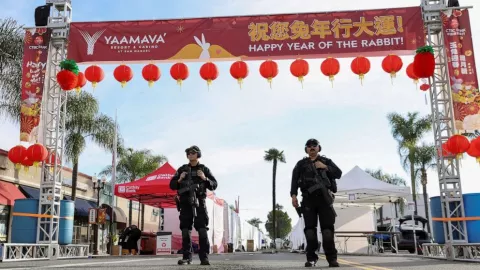
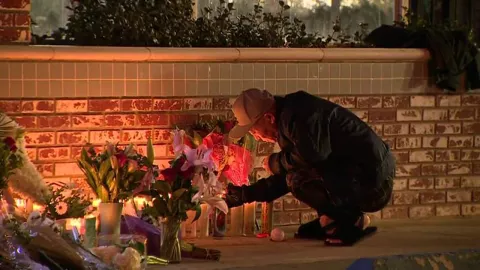
AAPI COMMUNITY SUPPORT
Community Grief Circles
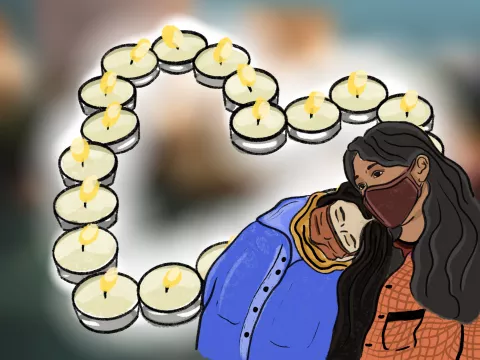
Asian Mental Health Project - Community Healing Circles
1/23 - 1/26 @ 4:30 pm PT (Daily)
Amplify RJ Collective Grief Space
Tuesday, 1/24 @ 6 pm PT
Healing Circle hosted by UC Office of the President’s APISA.
Wednesday, 1/25 | 3pm – 4pm.
Attend via ZOOM or in person at UCOP's Broadway Building 5001 in Oakland. Contact Tony Yang for details
Hate is a Virus - Community Grief Circle
Thursday, 1/26 @ 6 pm PT
Monterey Park Lunar New Year Victims Fund
Please donate to this collective fundraiser by Asian Americans Advancing Justice - SoCal, Stop AAPI Hate, Asian Pacific Community Fund, The Asian American Foundation, AAPI Equity Alliance, Gold Hosue, Stand with Asian Americans, Chinatown Service Center and Ann Wang
Additional Resources
- Resources for victims, survivors and community members compiled by the AAPI Equity Alliance
- Asian American Health Initiative Resource Library
- 17 Mental Health Services for Asian Americans and Pacific Islanders
- Asian American & Pacific Islander Mental Health Resources
- Stop AAPI Hate - Act Now
- How to talk with Asian Elders About Getting Mental Health
UCSF SUPPORT SERVICES & RESOURCES
Faculty and Staff Assistance Program
As members of the UCSF Campus and Health community, the Faculty and Staff Assistance Program (FSAP) invites all faculty, staff, residents, postdocs, and clinical fellows to use our confidential employee assistance services, which are provided at no cost. We are staffed by licensed psychologists and postdoctoral trainees who provide confidential, brief psychological counseling to individuals and a wide variety of consultation services to the organization.
Please email us at [email protected] to make an appointment. We are now scheduling new client appointments end of June 2022. In your email, please indicate:
- A few dates/times (no weekends/no evenings/no 12-1pm appointments due to lunch hour) that work well for you starting the week of 6/27/22, and
- If you prefer a phone or Zoom session
Due to the high volume of requests, we may get back to you within 3-5 days.
Student Health and Counseling Services
- Our counseling and psychiatry model has been adjusted to meet the immediate needs of students and to preserve the health of students and staff.
- All in-person visits have been curtailed. All visits will be conducted by phone or HIPAA-compliant Zoom meeting.
- If you would like to discuss your concerns and options for getting help, you can schedule an initial consultation appointment via the portal.
This consists of a 20 to 25 minute phone call with a counselor at SHCS. If you encounter any challenges with scheduling, please give us a call at 415-476-1281 so that we may assist you. - If you have a current mental health provider and would like an appointment with your provider, please contact them via secure message.
- Next Day web booked appointments are available via the portal (can be scheduled 24 hours in advance).
- Hours: Monday-Friday, 8 a.m. to 5 p.m.
- For after-hours support, including evenings and weekends, please call 415-476-1281 (option 2) to speak with a mental health clinician.
- You can access the following options below on your own or have your provider help you:
- LiveHealth Online for primary care and mental health care
- TAO for mental health self-help
- Text STEVE to 741741 to access a live, culturally sensitive, text-based Crisis Counselor
UCSF Spiritual Care Services
Spiritual Care Services facilitates religious rituals and personal spiritual practices and provides emotional support and exploration of issues that are of meaning and value to patients, their families and loved ones, and UCSF faculty, staff, and students. Chaplains aim to support everyone in their spiritual journeys, whatever paths they may choose – including those who do not hold to any religious affiliation. We are available 24 hours every day by contacting our on-call pagers (at Parnassus, Mount Zion, and Mission Bay) or the on-call Voalté phone (at Mission Bay). On Mondays through Fridays, chaplains – including staff chaplains and interns – visit patients during the daytime. During evenings, nights, weekends, and holidays, an on-duty chaplain responds to all requests and referrals. Chaplains make approximately 60,000 inpatient visits annually.
Claremont EAP
(for BCH OAK Staff Only)
Consultation & Referral - A cornerstone of our program is the management consultation process. When employees are having personal issues impacting the workplace, we can help with formal and informal referrals to EAP.
Critical Incident Response - When your workplace experiences a disruptive event, like death of a co-worker, robbery, natural disaster, accident, lay-off, etc., Claremont can help. A licensed counselor is available 24/7/365 to provide telephonic support. We can also provide an on-site counselor trained in critical incident response. We also offer printed materials for distribution, as appropriate.
COLLECTIVE ACTION
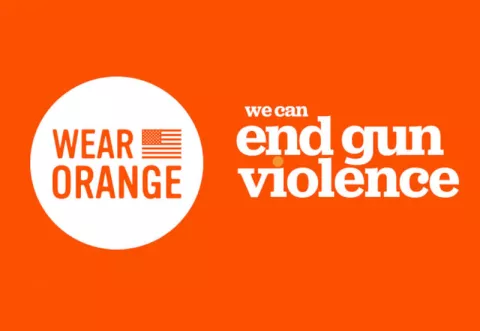
Wear Orange
In 2023, the 9th National Gun Violence Awareness Day falls on June 2, the first Friday of the month.
Why orange?
On January 21, 2013, Hadiya Pendleton marched in President Obama’s second inaugural parade. One week later, Hadiya was shot and killed on a playground in Chicago. Soon after this tragedy, Hadiya’s friends commemorated her life by wearing orange, the color hunters wear in the woods to protect themselves and others. Wear Orange is now observed every June. Thousands of people wear the color orange to honor Hadiya and the more than 40,000 people who are killed with guns and approximately 85,000 who are shot and wounded every year.
March for Our Lives
Born out of a tragic school shooting, March For Our Lives is a courageous youth-led movement dedicated to promoting civic engagement, education, and direct action by youth to eliminate the epidemic of gun violence.
In the days after the tragedy at Marjory Stoneman Douglas High School in Parkland, Florida, we knew we had to make sure that what happened to our community never happens again.
We cannot allow one more person to be killed by senseless gun violence. We cannot allow one more person to experience the pain of losing a loved one. We cannot allow one more family to wait for a call or a text that never comes. We cannot allow the normalization of gun violence to continue. We must create a safe and compassionate nation for all of us.
Everytown
Everytown is the largest gun violence prevetion organization in America. Gun violence touches every town in America. For too long, life-saving laws have been thwarted by the gun lobby and by leaders who refuse to take common-sense steps that will save lives. But something is changing. More than 8 million mayors, moms, teachers, survivors, gun owners,students, and everyday Americans have come together to make their own communities safer. Everytown starts with you, and it starts in your neighborhood. By introducing evidence-based solutions in every town, we can end gun violence.
Moms Demand Action
Moms Demand Action is a grassroots movement of Americans fighting for public safety measures that can protect people from gun violence. We pass stronger gun laws and work to close the loopholes that jeopardize the safety of our families. We also work in our own communities and with business leaders to encourage a culture of responsible gun ownership. We know that gun violence is preventable, and we’re committed to doing what it takes to keep families safe.
SUPPORTING RACIAL JUSTICE ORGANIZATIONS IN THE BAY AREA
HELPING KIDS GRIEVE
Helping Kids Grieve - Sesame Street in Communities
Coping with the death of a loved one brings enormous challenges for the whole family. Grieving may never completely end, but working through the difficult feelings can become easier with time. Through support, open conversations, and finding ways to keep the person’s memory alive, families can begin healing together.
Be Honest and Concrete: Tips for Talking to Kids About Death by Anya Kamenetz and Cory Turner - NPR, May 28, 2020
Whether it's a family pet or a loved one, every child will experience a death at some point — and their parents will likely struggle to explain it. We revisit the Mr. Hooper episode of Sesame Street, which provides a master class in talking about death and grief with young children.
Responding to Change & Loss toolkit - National Alliance of Grieving Children
The NAGC would like to encourage everyone to prioritize self-care. For many of us, there is grief in the loss of normalcy, and we encourage you to hold space for that. We want you to know you are not alone in the experience, the challenges it may be creating and the feelings that may be surfacing. In response to this, the NAGC (with the support of Alex Cares for Grieving Youth®) has released the booklet "Coping with Change and Loss" to be shared freely with families.
Supporting Students Coping with Grief - MSW Degrees
The informatiomal guidebook provides research- and expert-driven information and tips on how grief affects children and young adults and how education professionals can help them navigate their feelings and remain successful in school.
Online Resources
- Parenting - Offers a wide array of resources for parents.
- Parmenter Foundation - Provides hope and support for our community members who are grieving or in need of compassionate end-of-life care.
- Courageous Parent's Network - A destination created by families, for families, to support, guide and strengthen them as they care for very sick children.
- What's Your Grief? - Their mission is to promote grief education, exploration, and expression in both practical and creative ways.
- Alliance for Grieving Children - Their mission is to raise awareness about the needs of children and teens grieving a death and provide education and resources to anyone who wants to support them.
- Children's Grief.net - Helping children with grief and trauma.
- Widowed Parent - The Widowed Parent project is committed to supporting widowed mothers and fathers with children in the home.
- Talking to Children About the Shooting - from the National Child Traumatic Stress Network
- Disaster and Trauma Resource Center - American Academy of Child & Adolsecent Psychiatry
Suggested Reading List: For Adults Helping Children Grieve
- Childs-Gowell, Elaine, Good Grief Rituals: Tools for Healing
- Coles, Robert, The Spiritual Life of Children
- Doka, Kenneth J., Children Mourning: Mourning Children
- Fitzgerald, Helen, The Grieving Child: A Parent's Guide
- Fox, S., Helping Groups of Children When a Friend Dies
- Fry, Virginia Lynn, Part of Me Died, Too: Stories of Creative Survival Among Bereaved Children and Teeneagers
- Furman, Erma, A Child's Parent Dies
- Goldman, Linda, Life and Loss: A Guide to Helping Grieiving Children
- Gordon, Audrey and Klass, D., They Need to Know: How to Teach Children About Death
- Grollman, Earl A., Talking About Death: A Dialogue Between Parent and Child
- Grollman, Earl A., Bereaved Children and Teens
- Huntley, Theresa, Helping Children Grieve: When Someone They Love Dies
- Jarratt, Claudia Jewett, Helping Children Cope with Separation and Loss
- Krementz, Jill, How It Feels When a Parent Dies
- Kroen, William C., Helping Children Cope with the Loss of a Loved One: A Guide for Grownups
- Kubler-Ross, Elizabeth, On Children and Death
- LeShan, Eda, Learning to Say Goodbye: When a Child's Parent Dies
- Lord, Janice Harris, No Time for Goodbyes: Coping with Sorrow, Anger and Injustice after a Tragic Death
- Lord, Janice Harris, Beyond Sympathy: How to Help Another Through Injury, Illness or Loss
- Menten, Ted, Gentle Closings: How to Say Goodbye to Someone You Love
- Schaefer, D. & Lyons, C., How Do We Tell the Children? Helping Children Understand and Cope When Someone Dies
- Stein, Sara Bonnett, About Dying: An Open Family Book for Parents and Children Together
- Trozzi, Maria, Talking with Children About Loss: Words, Strategieis and Wisdom to Help Children Cope with Death, Divorce and other Difficult Times
- Wolfelt, A., Helping Children Cope with Grief
- Worden, J. William, Children and Grief: When a Parent Dies
- Ziegler, Robert G., Homemade Books to Help Kids Cope
